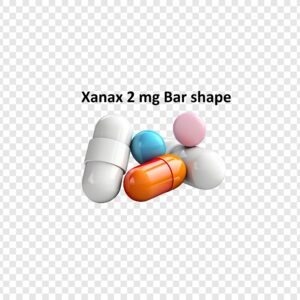Klonopin, a brand name for the drug clonazepam, is a benzodiazepine renowned for its efficacy in managing various conditions related to anxiety and seizures. At the 2 mg dosage strength, Klonopin offers a higher potency, providing relief for individuals dealing with more severe symptoms. This article explores the pharmacological characteristics, therapeutic uses, potential side effects, and considerations surrounding Klonopin 2 mg, shedding light on its significance in the realm of mental health treatment.
Pharmacological Insights:
1. Mechanism of Action:
- Enhancing GABA Effects: Clonazepam, the active ingredient in Klonopin, exerts its effects by enhancing the inhibitory actions of gamma-aminobutyric acid (GABA) in the central nervous system. This results in a calming and relaxing effect, making it effective in managing conditions associated with excess neural excitation.
2. Therapeutic Indications:
- Anxiety Disorders: Klonopin 2 mg is often prescribed for the management of severe anxiety disorders, offering relief from symptoms such as excessive worry, tension, and restlessness.
- Seizure Disorders: Clonazepam is recognized for its antiepileptic properties, making it a key player in the management of various seizure disorders.

3. Dosage Specifics:
- Higher Potency: Klonopin 2 mg represents a higher dosage within the Klonopin spectrum. This strength is typically reserved for cases where more significant anxiolysis or anticonvulsant effects are required.
4. Onset of Action and Duration:
- Intermediate Onset: Klonopin is known for its intermediate onset of action, providing relief within a reasonable timeframe.
- Extended Duration: The effects of Klonopin 2 mg typically last longer compared to shorter-acting benzodiazepines, allowing for less frequent dosing.
Therapeutic Landscape:
1. Anxiety Management:
- Severe Anxiety Relief: Klonopin 2 mg is particularly effective in managing severe anxiety symptoms, offering individuals a reprieve from the intensity of their anxious experiences.
- Balancing Immediate and Sustained Relief: The intermediate onset and extended duration of Klonopin 2 mg strike a balance between providing immediate relief during acute episodes and maintaining a steady, calming influence over an extended period.
2. Seizure Control:
- Antiepileptic Effects: Klonopin, at 2 mg or other dosages, is recognized for its antiepileptic effects. It helps control and prevent various types of seizures, providing individuals with greater seizure threshold.
- Adjunctive Therapy: Clonazepam may be prescribed as an adjunctive therapy alongside other antiepileptic medications to enhance overall seizure management.
Potential Side Effects:
1. Common Side Effects:
- Sedation and Drowsiness: Klonopin’s sedative effects can lead to drowsiness and sedation. Individuals are advised to avoid activities requiring mental alertness, especially when initiating treatment or adjusting dosages.
- Cognitive Impairment: Some users may experience cognitive impairment, affecting memory and concentration.
2. Serious Side Effects:
- Respiratory Depression: In rare instances, particularly when combined with other central nervous system depressants, Klonopin may cause respiratory depression, a potentially serious side effect.
- Dependence and Withdrawal: Prolonged use of Klonopin, even at 2 mg, may lead to dependence, and abrupt discontinuation can result in withdrawal symptoms.
3. Interaction with Other Substances:
- Drug Interactions: Klonopin can interact with various medications, including other benzodiazepines, certain antidepressants, and opioids. Comprehensive disclosure of all medications and substances is essential to mitigate potential interactions.
Striking a Therapeutic Balance:
1. Short-Term vs. Long-Term Use:
- Acute Relief vs. Dependence Risk: Klonopin 2 mg is often used for acute relief during severe anxiety episodes or as part of the ongoing management of chronic anxiety disorders. However, the risk of dependence underscores the importance of cautious prescribing, with long-term use approached prudently.
- Tapering Protocols: When discontinuation becomes necessary, a gradual tapering schedule is often employed to minimize withdrawal symptoms.
2. Individualized Treatment Plans:
- Holistic Considerations: Healthcare providers tailor treatment plans to individual needs, considering the nature and severity of the condition, the presence of coexisting health concerns, and the individual’s response to the medication.
- Regular Assessments: Regular follow-up assessments are essential to gauge the ongoing effectiveness of Klonopin 2 mg and make any necessary adjustments.
3. Monitoring and Adjustments:
- Continuous Evaluation: Regular check-ins and monitoring are crucial to evaluate the ongoing efficacy of Klonopin 2 mg





Reviews
There are no reviews yet.